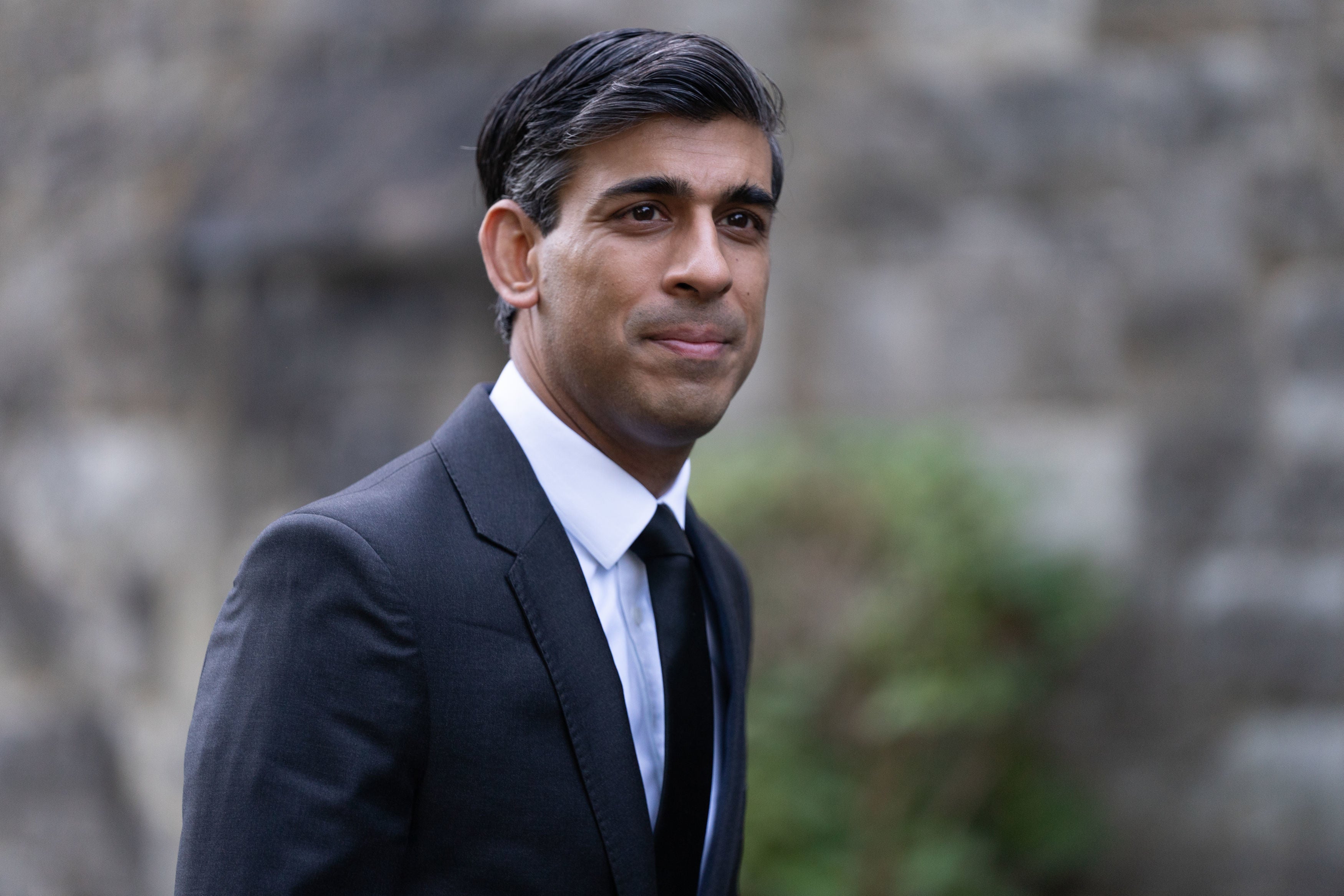Rishi Sunak’s Budget will squeeze public spending – can he get away with it?
The Treasury is in the ascendancy for now – but the prime minister might end up siding with other ministers in his cabinet over spending, writes Andrew Grice


The Conservatives have lost one of their two selling points on the economy – being the low-tax party – after announcing a tax rise to fund health and social care. So Rishi Sunak is determined to use next Wednesday’s Budget to safeguard the second one – fiscal responsibility.
The chancellor has taken a tough line with cabinet ministers in the government-wide spending review, including those who moved to new roles in last month’s reshuffle and promptly demanded more money than their predecessors had got.
Sunak will announce new fiscal rules to ensure that day-to-day spending on public services is not funded by borrowing in a few years’ time as he tries to draw a line under his £407bn splurge during the Covid-19 pandemic.
Yet with the bounceback looking more fragile than Sunak thinks amid supply chain problems, he risks reducing borrowing too quickly, taking demand out of the economy and strangling the recovery. Even international bodies like the International Monetary Fund (IMF) and Organisation for Economic Co-operation and Development (OECD) argue a fiscal stimulus is the responsible approach – as Joe Biden is doing with his massive $1.9 trillion (£1.38 trillion) American rescue plan. Today the Confederation of British Industry (CBI) called on Sunak to “stimulate the economy”.
Such statements will give Labour space to argue for higher spending than the Tories – such as the £28bn a year of green investment promised by Rachel Reeves, the shadow chancellor – without jeopardising her party’s drive to regain economic credibility.
Sunak’s squeeze on public spending risks a return to the austerity era of George Osborne. Of course, the chancellor will deny it; austerity is out of fashion, not least with his Downing Street neighbour. Sunak will doubtless produce a rabbit out of the hat on public spending – perhaps a baby one on childcare costs. Tory MPs have been tipped off about a shake-up of alcohol taxes to help English wine producers (good news for me, as the sparking variety will be cheaper). The chancellor will surely have to nod to the looming cost-of-living crisis. He might tweak the taper rate of universal credit so low-paid workers keep a little more of every extra pound they earn, and will confirm a rise in the national minimum wage.
His allies tell me Sunak believes public spending was already high before the pandemic, so any squeeze outside the protected departments such as health, education and defence will not mean real “cuts”. That will not stop Labour labelling them as such.
The chancellor is worried rising inflation will push up the cost of servicing the government’s debt. The Bank of England, which might increase interest rates as soon as next month, believes rising inflation is “transitory” but Sunak is not convinced. He intends to “bank” his windfall from lower than expected borrowing this year to reduce the deficit and build up a war chest in the hope of cutting taxes before the next general election.
But some analysts suspect the chancellor will pivot too quickly to fiscal consolidation – even for his own good. George Dibb, head of the Centre of Economic Justice at the IPPR think tank, told me, “Organisations who were the cheerleaders for austerity after the financial crisis are now making the case that fiscal stimulus is the fiscally responsible thing to do. The chancellor is therefore going against international opinion on how we should seek to recover.”
The IPPR believes the recovery is still “very fragile”; its research suggests high levels of debt in small companies is a real concern. Dibb fears the chancellor will return to “an austerity mindset”, which failed on its own terms. “It cut demand from the economy and we had 10 years of stagnant investment. The danger is you strangle the economy. Rishi Sunak will not get the headroom he needs to cut taxes if we have two or three years of stagnant productivity and poor growth.” He also warned: “There is no way you can ‘level up’ or achieve ‘net zero’ without significant public expenditure.”
The IPPR will join forces with other progressive think tanks to urge Sunak to use his room for more borrowing to invest in the economy. “There is plenty of inspiration around – like Joe Biden,” said Dibb. “We need to ‘boost it like Biden’. We are calling for a big boost, a green and health and care-led recovery. We need between £70bn and £90bn of further public investment over the next year.”
Amid real tension between Sunak and Boris Johnson about the level of spending, the Budget might not be the last word. Stand by for a cabinet fight between Sunak in one corner and Kwasi Kwarteng (responsible for “net zero”) and Michael Gove (“levelling up”) in the other.
For now, the Treasury is in the ascendancy. But Johnson might side with Kwarteng and Gove so he can deliver in his two priority areas. Whitehall insiders think the outcome of this power struggle will define the government.






Join our commenting forum
Join thought-provoking conversations, follow other Independent readers and see their replies
Comments